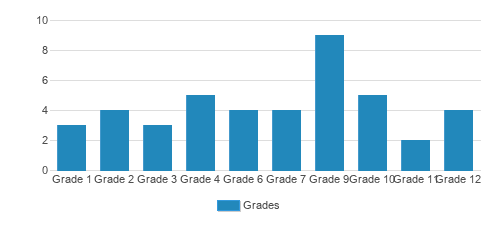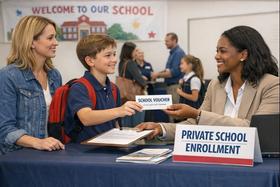Cypress Schools are two non-public schools in Petaluma for students with autism and similar intellectual disabilities and moderate to severe behavior problem.
Cypress primary serves students ages 5-14 years old and Cypress Secondary serves students ages 14-22 years old.
All of the students have functional academic and skill goals focusing on vocational, independent living, social communication and sensory regulation skill development.
Skills include academics, watering, picking and delivering organic vegetables, using our washer and dryer, planning, shopping, preparing, cooking and serving a hot meal, participating in school chores- watering plants, sweeping, wiping tables and chairs and van washing. Creative Arts include daily music and art activities and weekly Drama Therapy.
Social skills are developed in individual and small group activities including integration opportunities with neighborhood elementary and middle/high school peers.
Sensory Regulation and physical activities average 80 minutes per school day.
Our Multidisciplinary team including the student and family with our Special Education Teacher, Speech, Occupational, Counselor and Behaviorist develops annual individualized goals.
The direct individual and/or group educational and therapeutic services are implemented by the teaching staff in the school classrooms, kitchen, music and art room, Speech, Counseling, and Occupational Therapy rooms, grocery store, park, community organic school farm, dance, gymnastics and horseback riding.
Therapy Consultation can be used to direct the teacher, aide and family as to implementation of the goals, to observe the implementation of the goals, and to modify and develop instruction, curriculum and materials.
The School Director, Teacher, Aides, Behaviorist, Occupational, Counselor and Speech Therapists work together to encourage our students to increase initiation and independence, interact socially, communicate their needs and regulate themselves throughout the day.
Quick Facts (2026)
- School Type: Special Education School
- Grades: 1-12
- Enrollment: 43 students
- Application Deadline: None / Rolling
- Source: Verified school update
School Overview
School Type
Religious Affiliation
Grades Offered
Grades 1-12
Offers Post-Graduate Year
Yes
Learning Difference Programs
Yes
Learning Programs Supported
Autism and similar disabilities
Year Founded
2007
Summer School Offered
Yes
School Calendar
Student Body
Total Students
43 students
Student Body Type
Co-ed
% Students of Color
38%
State avg.: 51%
Students by Grade

Academics and Faculty
Total Classroom Teachers
9 teachers
Student-Teacher Ratio
5:1
National avg.: 11:1
Number of AP/Advanced Courses
10 courses
Tuition and Acceptance Rate
School Notes
- School Motto: Life without limits
- School Mascot: Eagles
- Cypress Schools are two non-public schools in Petaluma for students with autism and similar intellectual disabilities and moderate to severe behavior problem. Cypress primary serves students ages 5-14 years old and Cypress Secondary serves students ages 14-22 years old. All of the students have functional academic and skill goals focusing on vocational, independent living, social communication and sensory regulation skill development. Skills include academics, watering, picking and delivering organic vegetables, using our washer and dryer, planning, shopping, preparing, cooking and serving a hot meal, participating in school chores- watering plants, sweeping, wiping tables and chairs andvan washing. Creative Arts include daily music and art activities and weekly Drama Therapy. Social skills are developed in individual and small group activities including integration opportunities with neighborhood elementary and middle/high school peers. Sensory Regulation and physical activities average 80 minutes per school day.Our Multidisciplinary team including the student and family with our Special Education Teacher, Speech, Occupational, Counselor and Behaviorist develops annual individualized goals. The direct individual and/or group educational and therapeutic services are implemented by the teaching staff in the school classrooms, kitchen, music and art room, Speech, Counseling, and Occupational Therapyrooms, grocery store, park, community organic school farm, dance, gymnastics and horseback riding. Therapy Consultation can be used to direct the teacher, aide and family as to implementation of the goals, to observe the implementation of the goals, and to modify and develop instruction, curriculum and materials. The School Director, Teacher, Aides, Behaviorist, Occupational, Counselor and Speech Therapists work together to encourage our students to increase initiation and independence, interact socially, communicate their needs and regulate themselves throughout the day.
Source: Verified school update
Frequently Asked Questions
When is the application deadline for Cypress School?
The application deadline for Cypress School is rolling (applications are reviewed as they are received year-round).
School Reviews
Endorse Cypress School. Endorsements should be a few sentences in length. Please include any comments on:
- Quality of academic programs, teachers, and facilities
- Availability of music, art, sports and other extracurricular activities
- Academic or athletic awards
Recent Articles

Private School Fees Increase Mid-Year: A Parent Action Plan
A 2026 parent action plan for managing mid-year private school tuition increases, including contracts, negotiation tips, and financial options.

Private School Scholarship Scams & Red Flags to Watch Out For (2026 Guide)
Learn how to spot private school scholarship scams in 2026, including red flags, real examples, and expert tips to protect families.

Diversity in Private Schools: Progress and Obstacles in 2026
Explore how private schools are advancing diversity in 2026, key gains made, ongoing challenges, and what families should know.










